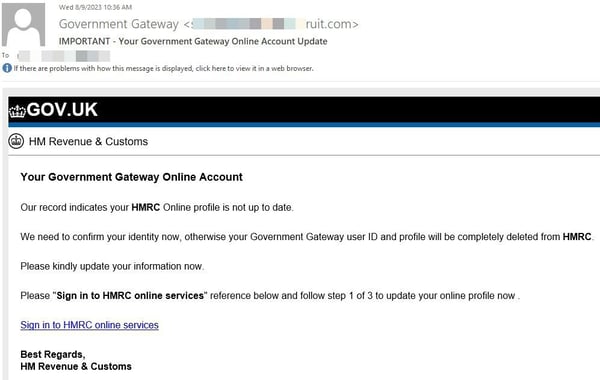Nearly One-Quarter of Financial-Themed Spam Emails are Phishing Attacks

While spam tends to be dismissed as being more an annoyance, new research shows that there is a very real and ever-present threat in emails that are marked as “spam”.
I’ve written plenty about phishing attacks that target bank customers. It’s nothing new. What’s interesting is a recent article by security researchers at BitDefender where banking-related phishing attacks are considered spam. According to the article, 23% of all financial-themed emails marked as spam were actually phishing attacks attempting to obtain banking credentials, PINs, and other financial information.
In all cases, the emails impersonated a legitimate bank to look like official correspondence, and each sought to have the recipient to logon to their account or provide details.

I’m honestly not sure why a phishing attack is considered spam – I suppose, in a way, because it’s unwanted, it is spam. But, given the benign characterization of spam – and the very much NOT benign nature of phishing attacks – it may be a bit improper to even refer to such emails as spam at all. Calling them what they are (phishing emails) would certainly help to elevate the employee’s state of vigilance – particularly those that have undergone security awareness training.
No matter what you call it, I call it dangerous and potentially harmful. Stay vigilant, my friends!
Request A Demo: Security Awareness Training

New-school Security Awareness Training is critical to enabling you and your IT staff to connect with users and help them make the right security decisions all of the time. This isn’t a one and done deal, continuous training and simulated phishing are both needed to mobilize users as your last line of defense. Request your one-on-one demo of KnowBe4’s security awareness training and simulated phishing platform and see how easy it can be!
PS: Don’t like to click on redirected buttons? Cut & Paste this link in your browser:
https://www.knowbe4.com/kmsat-security-awareness-training-demo

